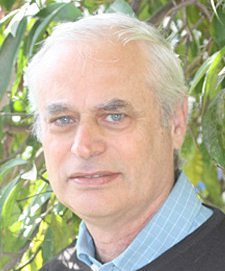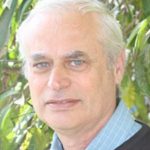

By Richard Stone
In late September, I attended a gathering which, while unusual for Fresno in its unvarnished honesty, was as much anxiety-producing as satisfying for me. It involved a multiracial panel of Christian religious leaders—with those of color for once in the majority. And it addressed frankly the issue of “religion and racism” in a discussion framed by two academic activists from Fresno State with standing in the religious community. It was held (and about time!) at a West Fresno church, before a large, well-integrated audience numbering perhaps 200.
In the panelists’ opening responses, there was obvious familiarity and collegiality, and evident brotherhood-in-Christ even including the one woman. The comfort in this shared status, however, soon gave way as skillful questioning by the facilitators brought out divergent, starkly contrasting, experiences among the panelists of living in race-based America.
While the clergy-of-color spoke poignantly about difficult encounters in White America, the two White males on the panel answered blandly that they had never personally experienced racism (even the one from Oklahoma, for God’s sake) and felt no need to speak to racial issues at a congregational level. However, one of the facilitators pointedly invited the younger of these ministers, formerly a college athlete who had cited the equal opportunity of his Black teammates on the playing field, to ask those presumed peers what their social experience had been at that time, with the strong implication that the picture would not be so rosy.
And when the other Caucasian pastor was asked about the Trayvon Martin case, he said he had no way to know the facts or make a judgment, that all he could do was teach people to act with Christian charity. To which one of the Black ministers replied, with depth of feeling, “In my church, there was no way to not discuss the case. A young Black man went to the store and didn’t get home alive. The causes must be looked at, the safety of our sons is at stake.”
To my ears, the two White men came across as willfully naïve and evasive about confronting what one facilitator called “structural racism.” They were unprepared to admit the reality of “White privilege” or the need to challenge the existing power structure, which is often embedded in the law itself and in the working of the criminal justice system. These pastors felt free to laud Dr. King’s inclusiveness and nonviolence, but they did not extend their admiration to his prophet-like denunciations of economic injustice or his involvement in civil disobedience.
Their behavior was not new or unexpected to me—I’d seen them in action before. But it was powerful “theater” to see these men’s confident righteousness enacted in public in a setting where the authority of their pronouncement could be countered. They may even have been able to learn something about the city they live in.
I was glad to watch this turn of events. Still for me, Jewish by birth though not observance, the Christian basis of the evening was unsettling. It is not welcoming for me to hear again that “Jesus is the Way” (not just a very good way).
And then, when one of the most eloquent African American ministers added that he stood in solidarity with anti-choice and anti-gay aspects of Christian social activism, it made my queer feminist heart quail. Why is it so hard to see that the need to withhold judgment on people’s actions until knowing them and their stories goes beyond undoing racial profiling? Why is it so hard to see that beliefs may give sustenance and guidance without being universal truths; that other people, having had quite different experiences, may come to contrary understandings and principles that are of equal value and validity to them?
Utilizing as it did a formal structure and a strict norm of civility, the event was able effectively to dramatize crucial disparities without confrontation or anger. Avoiding accusation, it revealed the workings of White privilege (including the privilege of not having to think about it), and demonstrated the inadequacy of simply “acting Christian” without engagement in issues of power and justice. But also, even though the facilitators did speak regretfully at the beginning about “who wasn’t at the table” because of the need to manageably start the dialogue somewhere, for me it was a disconcerting reminder that I live in a predominantly Christian city, and the discourse starts there.
*****
Richard Stone is on the boards of the Fresno Center for Nonviolence and the Community Alliance and author of the forthcoming book, Hidden in Plain Sight. Contact him at richard2662559@yahoo.com.
